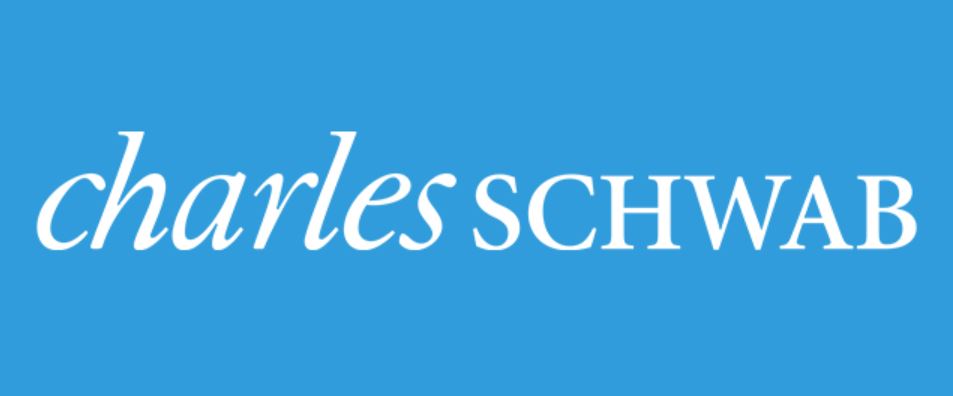





If you're looking to trade stocks or ETFs before the market opens or after it closes, you will need a brokerage platform that offers extended trading hours. Extended hours trading includes pre-market and after-hours sessions, which provide additional opportunities for trading outside the standard market times.
Pre-market trading typically allows you to place trades before the market opens, while after-hours trading lets you trade after the market closes.
These extended trading sessions offer the chance to react to important news and events that occur outside regular hours—but with significant caveats due to lower liquidity, wider bid-ask spreads, and increased volatility. For instance, major news such as earnings releases and economic data—including GDP reports, employment numbers, and retail sales—are often released either before the market opens or after it closes. Additionally, announcements from the Federal Reserve frequently occur between market sessions, impacting market direction significantly.
All these factors highlight both the benefits and risks of extended hours trading.
| Brokerage | Trading Hours (EST) | Key Features |
|---|---|---|
| Robinhood | 7:00 am – 8:00 pm | Commission-free stocks/ETFs/crypto; index options commission; 24-hour market feature; mobile & web platforms |
| Webull | 4:00 am – 8:00 pm | Advanced research tools; 24-hour trading (enable feature); limit orders only; mobile & desktop apps |
| Interactive Brokers | 4:00 am – 8:00 pm (plus overnight 8:00 pm–3:50 am) | Wide asset classes; IBKR Lite commission-free; overnight trading; sophisticated platform (TWS) |
| Firstrade | 8:00 am – 8:00 pm | Commission-free mutual funds; no contract fees on options; limit orders only |
| TradeStation | 4:00 am – 8:00 pm | Professional-grade tools; multiple asset types including crypto |
| Charles Schwab | 7:00 am – 8:00 pm (via thinkorswim platform) | 24/7 live support; extensive tradable assets; 24-hour trading on thinkorswim |
| Fidelity | 7:00 am – 8:00 pm | Commission-free trading; managed portfolios; 24/7 customer service |
| Merrill Edge | 7:00 am – 9:30 am; 4:01 pm – 8:00 pm | Integrated with Bank of America; limit orders only; $0 commissions |
| E*TRADE | 7:00 am – 9:30 am; 4:00 pm – 8:00 pm; overnight 8:00 pm – 7:00 am | Multiple platforms incl. Power E*TRADE; limit orders only |
| Moomoo | 24-hour trading (in select regions) | Commission-free; limit orders; global markets; mobile and desktop apps |
The regular stock market is open from 9:30 am to 4:00 pm EST Monday through Friday, excluding holidays.
Note that all times mentioned are based on Eastern Standard Time (EST).
Extended hours trading primarily attracts short-term active traders and investors reacting to market-moving news released outside regular hours.
Key advantages include the ability to place trades ahead of or following major announcements, enabling you to capture opportunities related to earnings reports, economic data, or geopolitical developments.
However, these sessions come with significant risks: lower liquidity often leads to wider bid-ask spreads and greater price volatility, increasing the chances of executing trades at unfavorable prices.
Another factor is potential market manipulation, more feasible during low-volume hours.
Due to increased volatility and lower liquidity, most brokerages only allow limit orders during pre-market and after-hours sessions. This means you must specify your desired price or better for buying or selling.
Limit orders help control execution prices but carry the risk that your order may not be filled if the market price does not reach your limit.
Many platforms also offer advanced tools, such as real-time market data, alerts, and AI-driven insights, which can aid in managing risks associated with extended hours trading.
Brokerages now typically provide robust mobile apps and web-based trading platforms with features tailored for extended hours, including:
Examples include Interactive Brokers' Trader Workstation (TWS), Charles Schwab’s thinkorswim platform with 24-hour capabilities, and E*TRADE's Power E*TRADE platform.

Robinhood revolutionized investing by offering a commission-free trading platform for stocks, ETFs, and cryptocurrencies. However, it currently charges commissions on index options, distinguishing them from other assets.
Robinhood supports extended trading hours from 7:00 am to 8:00 pm EST, allowing users to trade stocks and ETFs. The platform includes a special 24 Hour Market feature that lets investors trade certain securities around the clock, five days a week, starting Sunday 8:00 pm through Friday 8:00 pm.
While the extended hours trading is commission-free, fractional share investing is only available during regular market hours, not in extended sessions.
Robinhood provides both mobile and web platforms with an easy-to-use interface, though its extended hours do not support all order types besides limit orders to manage volatility risks.
Robinhood offers commission-free trading for stocks, ETFs, and cryptocurrencies during extended hours. However, index options trading incurs commissions.

Webull is a commission-free, advanced trading platform with a wide range of research and technical analysis tools, ideal for experienced traders.
It offers extensive pre-market and after-hours trading from 4:00 am to 8:00 pm EST, with an optional 24-hour trading feature that users can enable in the app, letting them trade select stocks and ETFs five days a week.
During extended hours, only limit orders are accepted to protect against high volatility and illiquidity. The platform has a sophisticated mobile app and desktop version with real-time data and customizable alerts.
Webull charges no commissions for trading during extended hours on eligible securities.

Interactive Brokers (IBKR) serves both beginners and advanced traders, offering one of the most sophisticated trading platforms — Trader Workstation (TWS).
IBKR provides access to an extended trading window from 4:00 am to 8:00 pm EST, as well as overnight trading sessions for U.S. stocks and ETFs from 8:00 pm to 3:50 am.
The platform supports multiple asset classes, including stocks, options, futures, crypto, and fixed income globally. IBKR Lite allows commission-free trading on U.S.-listed stocks and ETFs.
With advanced order types and real-time data tools, IBKR is well-suited for active traders requiring professional-grade software.
No additional fees apply for extended hours trading sessions.

Firstrade provides commission-free trading on stocks, ETFs, options, and over 11,000 mutual funds, making it an attractive option for diverse portfolios.
It supports extended trading hours from 8:00 am to 8:00 pm EST. Options trading is especially economical here, with no contract fees.
Only limit orders are allowed during extended hours to mitigate the risks of volatility and liquidity.
Commission-free trading is available during extended hours on stocks and ETFs.
Click here to open an account with Firstrade!

TradeStation is recognized for its professional-grade trading platform and caters primarily to active and institutional traders.
It offers extended hours trading on stocks and ETFs from 4:00 am to 8:00 pm EST, along with tools for automated trading, customizable charts, and access to cryptocurrencies.

Charles Schwab remains a leader in customer service with 24/7 live support and a large network of branches nationwide.
Schwab offers extensive tradable assets and, notably, 24-hour trading for stocks and ETFs on its thinkorswim platform, which is accessible to all clients.
While their traditional platform is user-friendly, thinkorswim caters more to advanced traders with powerful tools and real-time data analytics.
Commission-free trades are available during extended sessions for stocks and ETFs.

Fidelity, as a major competitor to Schwab, offers nearly identical extended trading hours and services.
They provide full commission-free trading during regular and extended hours from 7:00 am to 8:00 pm and excellent customer service with a large branch network.
All eligible stocks and ETFs traded during extended hours are commission-free.

Merrill Edge, integrated with Bank of America, offers a solid platform for all investor levels with pre-market hours from 7:00 am to 9:30 am and after-hours from 4:01 pm to 8:00 pm EST.
Only limit orders are accepted during extended sessions to manage price volatility and liquidity concerns. Trades can be placed via Merrill Edge's website and mobile app using a special extended-hours order ticket.
No additional fees are charged beyond the zero-commission structure applied to regular trading.

E*TRADE offers extensive extended hours trading with pre-market from 7:00 am to 9:30 am, after-hours from 4:00 pm to 8:00 pm, and an overnight session for select ETFs from 8:00 pm to 7:00 am.
The platform includes multiple trading options via their website, mobile app, and Power E*TRADE interface, supporting limit orders during extended hours to limit execution risk.
No additional fees apply for extended hours trading beyond the usual commission structure.

Moomoo is a digital brokerage platform focused on global markets with advanced trading tools and real-time data.
In regions such as Singapore, Malaysia, and Australia, Moomoo provides 24-hour uninterrupted trading of select U.S. stocks and ETFs, Monday through Friday from 8:00 pm EST Sunday to 8:00 pm EST Friday.
Only limit orders are accepted during extended hours, which helps control risk amid volatility.
Trading is accessible through both mobile and desktop platforms with no commissions on eligible securities.
While extended hours trading offers greater flexibility and the chance to respond promptly to breaking news, it also carries several risks that every trader should understand:
Extended sessions have fewer active participants, resulting in lower liquidity, which may cause delays in order execution or price differences from expected levels.
Prices often swing more dramatically outside regular market hours because of the lower volume and concentrated trading activity, increasing risk for traders.
The difference between buy and sell prices is typically larger during extended hours, potentially increasing trading costs.
With fewer market participants, manipulation by small groups is easier, which can cause misleading price movements.
Rapid price swings mean that without proper monitoring or risk controls like stop-loss orders, traders may experience significant unexpected losses.
Most brokers restrict extended hours trading to limit orders only, which can result in orders not being filled if price targets are not met in volatile markets.
Extended hours trading is heavily affected by overnight news such as earnings reports, economic releases, and global geopolitical developments, which can cause large price swings before markets open.
Institutional investors tend to dominate regular hours, providing balance to price movements. Their reduced presence during extended hours can lead to erratic price changes driven largely by retail traders.
Beginners should start by:
Many brokerages offer educational webinars, tutorials, and FAQs on extended hours trading. These can be invaluable for gaining deeper insights and improving trading skills.
For instance, explore the education centers on platforms like Interactive Brokers, Charles Schwab, and Fidelity for expert guidance.